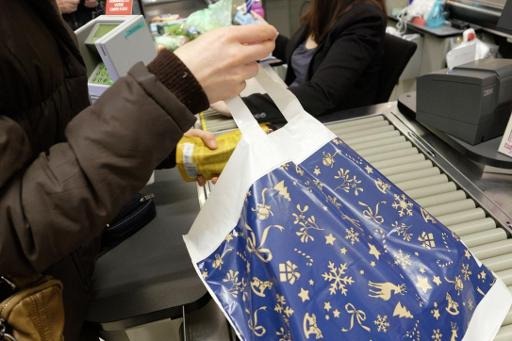Whilst the prohibition on single-use plastic bags comes into force from Thursday in Wallonia, the sector is still considering lock, stock and barrel all alternatives to plastic. Paper bags are not the best solution from a logistic and economic point of view, amongst other issues.
This has been indicated by Charles Petit, the leader of Comeos (the Belgian Federation of Commerce and Services) Brussels, when contacted by Belga.
Although the use of plastic bags is prohibited from tomorrow (December 1st), a proviso states that shopkeepers may run down their organisation's stock of plastic bags until December 1st, 2017. This is provided that those bags were bought before July 9th, 2016, the date of publication of the relevant regulation in the Belgian Official Journal.
Petit states, “All large multiples have not been using single-use bags for some ten years now” and have adopted the reusable bag.
He considers that consequently the biggest challenge is for the smallest traders (the bread shop, the butcher's shop and other similar shops) and the non-food sector.
He goes on, “We have no choice. We must comply with the prohibition but there is a degree of flexibility on the government's part, in allowing shopkeepers time to run down their stock of bags.”
The December 1st prohibition does not relate to lighter plastic bags, intended for use with fruit and vegetables, meat and fish and other products, for which negotiations in this sphere are still ongoing.
Petit stresses, “For now, for three years we wish to keep lighter plastic bags,” allowing a reasonable time to consider alternatives.
The option of the paper bag is not the best alternative for the sector, as it causes in particular environmental and logistical problems (a box of plastic bags equates to 17 boxes of paper bags, necessitating increased transport and other detrimental issues).
There are also the issues of resilience or even the cost (three and a half times greater than that of the plastic bag).
Moreover, the fact that it the paper is not transparent might cause, for major food sector chains as a whole, an additional cost of 3.8 million euros, related to the systemic checks of such bags by checkout personnel.
For these reasons, the sector is consequently envisaging other alternatives such as biodegradable bags, also known as “home-compostable” bags, which would possibly necessitate a time delay for implementation.
Petit argues, “Indeed we think that, within the next three years, home-composting will be significantly improved.”
Through the measures adopted, Belgium is moving towards a more constrained system than that proposed in Europe, he still considers, arguing strenuously for a coherent system in this field, across the three regions of Brussels Flanders and Wallonia.
The Brussels Times

